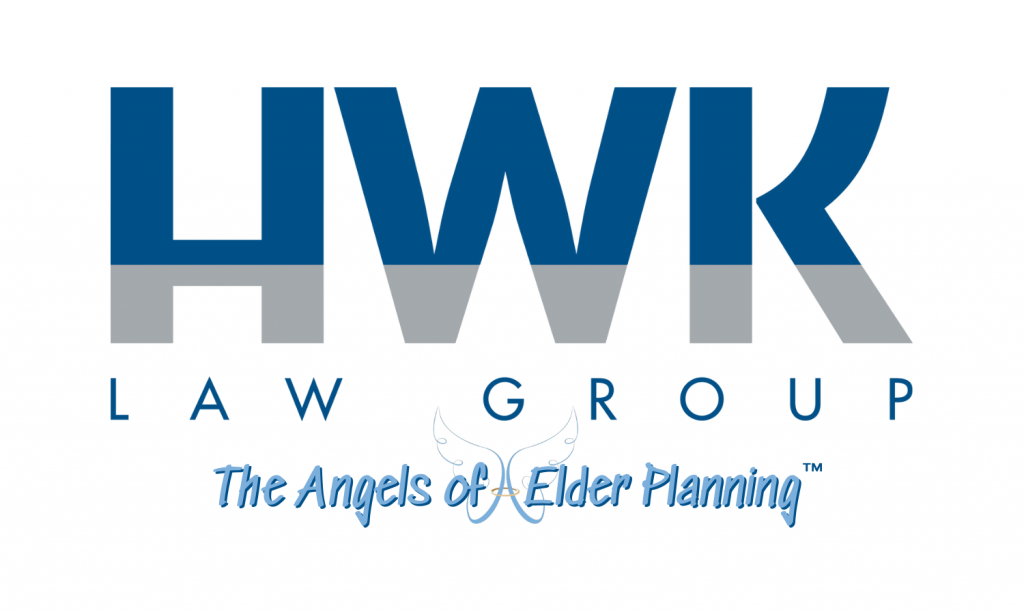
Elder Planning
Guiding Your Elderly Loved Ones to a Secure Tomorrow
HWK Law Group is the premier elder law, asset protection, medical assistance, and estate planning team for families in Maryland.
Many seniors who are eligible for Medicaid benefits are unaware they qualify to receive them. Others find the application process daunting. The Angels of Elder Care Planning™ of HWK Law Group offer the tools, information, and assistance you need to successfully navigate the process.
Working with The Angels of Elder Care Planning™ of HWK can offer a family the opportunity to sequester some of their life savings as opposed to spending that money on long term care expenses.
The cost of Angels of Elder Care Planning’s service is approximately the cost to care for someone in a long term care facility for one month. The savings to the family are extraordinary!
Our highly experienced team of elder care planning Angels enhance the ability of seniors to maintain the quality of care they receive though the following elder care services:
Assessing a Family's Financial Situation
- Consolidation of assets and income-producing annuities (this process helps exclude assets that would otherwise be counted under the Medicaid program)
- Liquidation of certain investments
- Changing ownership or titling of investments or insurance products.
Assisting with a Medicaid Application
- Compiling required documentation to present a Medicaid application (5 years of records prior to application)
- Auditing financial records to avoid scrutiny of expenditures
- Counseling how to spend down assets and proper record keeping
- Acting as a liaison between our client and the case worker during the Medicaid application process until the case has been determined and completed
- Completing annual re-certification of benefits for a nominal fee
- Coordinating baseline medical assessments to satisfy medical criteria for eligibility requirements in accordance with Medicaid rules
Nursing Home Admissions & Negotiations
- Negotiations with a nursing home regarding billing or back payments owed
- Processing of required medical reports and forms
- Admission to a nursing home or transferring from one facility to another
- Insuring that the facility is paid appropriately and the client receives the requisite care
Estate Planning Preparation
- Preparing estate planning documents
- Powers of Attorney (gives a trusted family member or friend the authority to make important financial decisions)
- Advanced Health Care Directives (allow families to make medical decisions for an incapacitated loved one)
- Wills, Trusts, and Deeds



What Is Elder Law?
Elder law is the culmination of Medicaid planning, estate planning, guardianships, trusts, Medicare, Social Security, prevention of elder abuse and fraud, nursing homes and so much more. It is an opportunity to embrace the idea of pre-crisis management and end of life planning as opposed to post-crisis management and running the risk of losing everything. Even in a situation of post-crisis management, much of the family’s assets can still be safe guarded.
Preserving Your Assets
WHY SHOULD I PRE-PLAN?
Pre-planning can allow you to protect your affairs by reduction or elimination of certain death taxes and /or the sheltering of assets from a nursing home.
ARE REVOCABLE LIVING TRUSTS (RLTs) BENEFICIAL?
This trust can eliminate probate and be beneficial. This type of trust is useful if you own real estate in more than one state. It can eliminate the need to have ancillary estates. In general RLTs:
- Do not by themselves eliminate income or death taxes
- Do not always eliminate probate
- Require the re-titling of assets
- Do not shelter assets from a nursing home
- Do not shelter assets from creditors.
CAN I PRESERVE MY ASSETS?
Yes! Proper planning can minimize taxes and/or shelter assets. There are numerous planning tools available to achieve your individual goals. No one tool is appropriate for every client and “cookie cutter” planning should be avoided.
Understanding Medicaid
Medicaid is a state specific program which assists low-income and low resource individuals/families in meeting the costs of medical care. Medicaid or Medical Assistance benefits are Title XIX of the Social Security Act; added to the Social Security Program in 1965. Each state has leeway in establishing eligibility requirements. Medical Assistance can also refer to community medical assistance benefits in which eligible persons are assisted with their daily medical needs. There is also Medical Assistance for long term care (LTC) needs (i.e. nursing home, day care, and some assisted living situations).
The federal government offers health insurance protection through Medicare. Medicare is not Medicaid. This coverage is very limited, thus the need for Medicare supplemental coverage policies or medi-gap coverage.
Please be advised that this information is general in content and not specific to any one situation. The Maryland Medicaid Program is governed by laws that are amended frequently. These laws originate at the Federal and State levels, and are enforced by the Maryland Department of Health and Mental Hygiene according to their own policies. This information is offered as a broad overview of some of the regulations that promote frequent questions. The information/content in this pamphlet should in no way be construed as legal advice.
WHAT WILL I NEED TO DO WHEN I APPLY?
You will need to complete and sign a Medicaid application form. The application form will request complete and detailed information on your financial situation. You will have to show that this information is true and verifiable before a decision on your eligibility can be made.
WHAT DETERMINES IF MEDICAID WILL PAY FOR MY NURSING HOME CARE?
Provided you are a U.S. citizen, a Maryland resident, a registered immigrant/naturalized and at least 65 years of age and disabled, eligibility for Medicaid is based on your income and resources (assets). Income includes: wages, Social Security benefits, annuity payments, retirement and pension. Resources include: bank accounts, stocks, savings bonds, property, life insurance, valuable collections, more than one (1) vehicle, boat, trailer, mutual funds and retirement accounts (IRA). The way income and resources are evaluated to determine the amount that you can retain and be eligible for Medicaid are set by law. Additionally, in order for Medicaid to pay for your nursing home care, there must be a determination that you need the health care services provided by a nursing home, (medical level of care).
WHAT IS A "LOOK BACK" PERIOD?
When you apply for Medicaid as an institutionalized person, the State will look at your finances for a certain period of time prior to your application to see if you, your spouse, or anyone else has transferred any of your resources or income at less than fair market value. The earliest date that can be looked at is called the “look back” period. Any transfer during that time for less than fair market value may result in a period of ineligibility to qualify for Medical Assistance benefits.
HOW IS THE LOOK BACK PERIOD DETERMINED?
This date will be from 60 months (5 years) prior to the month you apply for benefits and are institutionalized.
HOW ARE RESOURCES TREATED?
* Note: If you are married, your resources are treated differently than they are if you do not have a spouse.
Your countable resources cannot exceed $2,500. If you exceed this limit by $1 as of the first day of any given month (with the exception of income being received and immediately paid out to the nursing home), you will be ineligible for Medicaid benefits the entire month. Be mindful that if monthly income is received and not applied and/or spent on the Applicant’s cost of care within the same month received, the income is treated as an asset against the Applicant.
WHAT RESOURCES ARE NOT COUNTED?
Your home, providing it is your principle place of residence, a spouse or dependent relative lives in the home, or you express an intent to return to the home. If your home is not occupied by a spouse or certain relative, and you have a life estate deed with full powers to sell the property, the full fair market value of the home is treated as an asset.
- A vehicle
- Ordinary household goods and personal effects.
- Life insurance with a face value of less than $1,500 or more than one policy with the cumulative face values equaling $1,500 or less. (If the face value of one policy or the cumulative face values of more than one policy is in excess of $1,500 the full cash value of the policy or policies are treated as an asset.)
- Burial spaces for Applicant or immediate family members.
- Term or group life insurance, which typically does not have cash value.
- An irrevocable funeral service trust or final expense policy.
WHAT HAPPENS IF I HAVE TOO MANY RESOURCES?
Resources over the $2,500 limit must be spent down/used for the applicant’s prior medical expenses, funeral services and various other ways, just so long as they are not given away or exchanged for something of a lesser value.
HOW ARE MY RESOURCES TREATED IF I HAVE A SPOUSE IN THE COMMUNITY WHEN I APPLY?
When you apply for Medical Assistance, as assessment will be made of the total value of you and your spouse’s combined countable resources as of the first day of the first month one of you enters a nursing home.
WHAT IS A MEDICAID LIEN?
A Medicaid lien is a claim against your home property equal to the dollar amount of payments the Medicaid Program has made on your behalf.
WHEN WILL A LIEN BE PLACED ON MY HOME?
If the State of Maryland Medicaid Program determines and verifies that there is no reasonable expectation that you will return home from the nursing facility, the State will place a lien on your excluded home property unless it is occupied by one of the following: spouse, your unmarried child under 21, a son or daughter who is blind or disabled, or a sibling who has an equity interest in the home and who has resided in the home for at least one year prior to you entering the nursing home. The lien is lifted if you return to the home residence. When you die or your home is sold, no recovery will be sought through the lien if you have a surviving spouse, a surviving child who is unmarried and under 21, or a child who is blind or disabled. Also, no recovery will be sought as long as your home is occupied by a sibling who has an equity interest in the home, and who was residing there at least one year before you went into the nursing facility; or a son or daughter who has lived in the home for a least two years before you went in to the nursing facility and provided care which kept you out of the nursing facility.
WILL MEDICAID SEEK RECOVERY FROM MY ESTATE WHEN I DIE?
Medicaid will seek recovery of payments correctly made if you were 65 years old or older when you received Medicaid, but only after the death of your spouse and only if you have no surviving unmarried child under 21 years of age or a son or daughter who is blind or disabled.
HOW IS AN ACCOUNT TREATED WHICH YOU OWN WITH SOME ONE ELSE?
The full value of an account is considered to belong to you, the applicant, unless the other owner(s) can document that some or all of the funds are his or hers by contribution. Additionally, certain account titling requires joint consent and agreement in order to access the account. This may render an account unavailable for the purpose of the resource assessment.
How IS INCOME TREATED?
Any income received in your name is counted towards your cost of care. Income in your spouse’s name is not counted and a community spouse may qualify for a portion of your income toward household expenses. From your income, certain deductions are allowed:
- $84 personal needs allowance, which can be used for personal expenses such as toiletries, clothing, etc. (this amount is effective July 2021)
- An amount for your spouse (Spousal Income Allowance, if they qualify).
- The cost of any health insurance premiums, including Medicare and prescription drug plans.
- If you lived alone, you intend to return to your home, and it is medically reasonable to expect that you will be able to return to your home within six months, a limited monthly maintenance needs allowance to maintain your home can be requested.
If your monthly income, after these deductions, is less than the monthly cost of care, you will meet the income eligibility criteria for Maryland Medicaid benefits in a nursing home. The income remaining after these deductions must be paid to the nursing home. Medical Assistance benefits subsidizes your monthly income to pay the balance of the nursing home expenses up to the maximum that the nursing home is entitled to charge under the Maryland Medicaid Program.
WHAT INCOME CAN MY SPOUSE LIVING AT HOME KEEP IF I GO INTO A NURSING HOME?
When one spouse goes into a nursing home, Medical Assistance allows the spouse who remains at home to keep a certain level of income. If you enter a nursing home, your spouse living at home may keep the greater of:
- All income paid in your spouse’s name, no matter how large the sum, OR
- All income paid in the spouse’s name plus as much of your income as is necessary to bring your spouse’s income up to $2,349.00 a month. If your spouse’s housing costs are high, the $2,349.00 can be increased up to $3,216.00 (2021 – these amounts change yearly).
What Is Medicare?
Medicare is the federal health insurance program for people 65 years of age or older, certain younger people with disabilities receiving Social Security Disability Insurance payments for two years, and people with permanent kidney failure with dialysis or a transplant. Be sure to sign up for Medicare about three months before you reach age 65. You are eligible for premium free Part A if you are age 65 or older and you or your spouse worked and paid Medicare taxes for at least 10 years. Part B premiums are deducted monthly from your Social Security, Railroad Retirement or Civil Service Retirement check. See this website for premium amounts that change yearly: www.medicare.gov
Medicare A (Hospital Insurance) helps cover your inpatient care in hospitals. Part A also helps cover a skilled nursing facility (following a three-night hospital stay and discharge to a Medicare approved skilled nursing facility), hospice and home health care if you meet certain conditions.
Medicare B (Medical Insurance) helps cover medically-necessary services like doctors’ services and outpatient care. Part B also helps cover some preventative services to help maintain your health and to keep certain illnesses from getting worse.
Medicare C (Medicare Advantage Plans) combines Part A, Part B, and combines Part D (Prescription drug) coverage. These plans must cover medically-necessary services and can charge different co-payments, coinsurance, or deductibles.
Medicare Part D (Prescription Drug Coverage) may help lower your prescription drug costs and help protect against higher costs in the future. Enrollment is optional for all people who receive Medicare benefits, but you must enroll for this coverage to receive it. The drug plans cover most brand-name and generic drugs. Like other insurance, you pay a monthly premium, a deductible, and a share of the costs of your Prescriptions. Monthly premiums vary and your annual deductible will vary depending on the plan you pick. After you have satisfied your deductible, you will pay a percentage of your drug costs up to a certain amount. Then you will pay 100 percent of your drug costs until you have spent a yearly total. After that total is met, for the rest of that year, you will pay a minimal percentage of your drug costs. Cost maximums, yearly maximums and percentages may change, please refer to: www.medicare.gov for the most up-to-date information.
What does Medicare pay for long-term care?
Medicare pays for nursing home services under very limited circumstances and the care must be skilled/medically necessary. It does not pay for non-skilled, custodial care in your home or at a facility. Custodial care is help with activities of daily living such as bathing, dressing, eating, transferring (getting in or out of a bed or chair), toileting/maintaining continence; or the effects of a cognitive impairment such as Alzheimer’s or dementia, when the person is no longer safe to be alone. To qualify for Medicare coverage in a skilled nursing facility a three-night hospital stay is required. Medicare covers a short-term stay up to 100 days for recovery or rehabilitation. Beginning on the 21st day of the patient’s stay at a facility, the patient and/or their supplemental insurance provider will be responsible for the 20% co-insurance amount no longer covered by Medicare.
Your Elder Planning Team
Nicole R. Hewitt, Esq.
Attorney & Partner
Sherry Rush
Paralegal & Elder Planning Manager
Daphne Vasold
Estate & Elder Planning Paralegal

Jan Karner
Elder Planning Assistant




